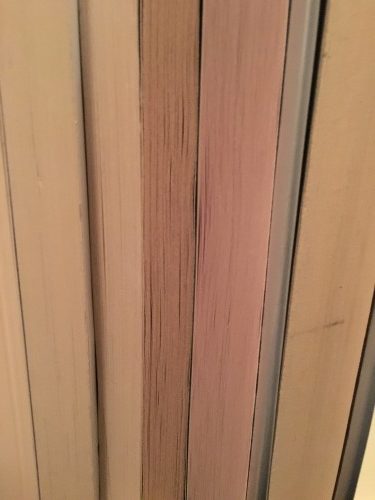Being a student of publishing, it’s hard not to notice the glaring whiteness of the overall program. Not to discredit the program or my peers in it, but Ooligan is made up of mostly white students. Yet this isn’t a direct issue with Ooligan’s program. It is an issue with publishing in general. Publishers Weekly put out an article a bit ago on why publishing is so white, which you can find here. The article has graphs, charts, and data, and every one of them shows the same thing: there is not enough diversity in publishing. What I am going to give you is my opinion on why that needs to change and how it is affecting the books publishers are putting out.
It’s easy to say, “Well, they should just publish books that have diverse characters” or “they should just hire people of color.” Yet it’s not as simple as that. From what I know of the hiring process, and it’s not a lot, new hires are from within the publishing house, or it’s someone who knows someone who knows someone. That’s not exactly a blaring opportunity for anyone. I’m not saying that people who are white should stop pursuing publishing, because then I would be telling myself that; I am saying that maybe instead of hiring someone from within the company or someone who knows someone, look at other avenues and offer greater opportunity. Look at the programs of people who are studying publishing. Post more internships or job opportunities where there are more diverse people. Be knowledgeable about the issues surrounding your field, and be conscious of them when hiring people. I’m also not saying to pick someone of color over someone who is white because of their skin color—look at their qualifications. More diverse people hired in publishing will most likely lead to more diverse books and more sales.
The lack of diversity in publishing is taking a toll on the kinds of books that publishers are publishing. There are more books that feature white protagonists. The books that feature diverse protagonists often have a historic or nonfiction spin to them. As someone who reads a lot and reads all different kinds of genres, I crave to read someone other than a white protagonist. Reading a book is often a personal experience, and while reading, the reader lives those lives along with the characters. I know some of the experiences I read about, being a white person. I want to read a story about a diverse character that isn’t stereotypical. If I feel this way, how does a person of color feel? I think that’s a question that publishers should ask themselves as they publish yet another white-protagonist book. People of color deserve to read a story where someone just as diverse saves the day, falls in love, saves themselves, travels, has adventures, and leads every other story under the gigantic sun we all live under. Books can have a huge influence over a person’s life. Recently, I wrote a blog post about the lack of body diversity in YA lit. Personally, I think it’s a similar thing. Not seeing a character like myself took a toll on me personally. I felt that I had to be thin to have adventures or to fall in love. If a person of color reads a book that has a white protagonist who saves the day or something else I mentioned above, will they believe they cannot save the day because there isn’t a character like them out there? Readers start young, and they learn that young. If nothing else, set an example for the younger generation. Strive to set a mark for being different and celebrating diversity.
So why aren’t there books out there that have diverse characters? I think one of two things happen: the first being that the person reading the manuscript submissions does not feel a connection to the story that features a diverse character, and the second being that they do feel a connection, but they don’t know how to do the story justice. I have a suggestion for both. If it’s the first thing, and it’s a solidly good story, find an editor, publishing house, or agent who does feel a connection to it. If it’s the second thing, then ask and work with the author to do the story justice. Sometimes it’s as easy doing research. I’m simply saying that you shouldn’t pass on a wonderful story just because it’s scary to try to get right. Sometimes the scariest things turn out to be the greatest and most important things.
I’m going to conclude with a message. I want to add my voice to the mix in support of their struggle to publish more stories with diverse voices. It’s important to readers to have multiple voices from multiple cultures.

